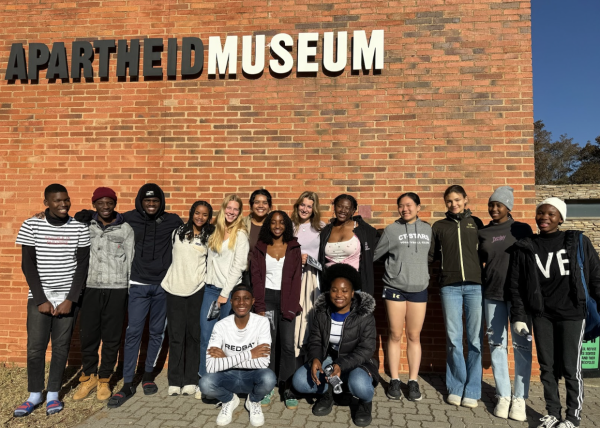Black @ Groton, Two Years Later
On the morning of June 4th, 2020, thousands of Groton alumni received an invitation from the Alumni Office to participate in various workshops organized as part of a “Virtual Food and Beverage Weekend.” Among them was a seminar on the intricacies of American Whiskey, a guide to cooking with rosé, and a tour of an alumnus’ vineyard and winery (“Please have a bottle of Italian wine – red or white – to taste!”). Though it may have enthused passionate sommeliers, the invitation sparked outrage among most recipients. It seemed in poor taste, given that ten days prior, Minneapolis police officer Derek Chauvin had murdered George Floyd by kneeling on his neck for 9 minutes and 29 seconds, unleashing a surge of national tumult with a force that hadn’t gripped the nation in decades. Hours later, another email postponed the event and retracted the invitation, citing its timing as inappropriate in a “time of national crisis and pain.” The damage, though, had already been done.
In the following days, a coalition of alumni established the Groton Alumni Call to Action – a network seeking to address the school’s role in “perpetuating systemic racism, both on its campus and as a member of society” according to its website, which has not been updated since late 2020. Two weeks after the invitation debacle, the network published a letter on its site addressed to the school administration and Board of Trustees, decrying their alleged “persistent culture of complacency” toward racial turmoil. Although much of the letter scrutinized Groton’s allocation of financial resources and demanded that significant portions be designated to bolster diversity and inclusion programs, it also blasted the school’s previous rhetoric regarding racial issues. On matters such as wealth inequality and injustice, the network accused Groton of skewing and cherry-picking Dr. Martin Luther King Jr.’s words as a substitute for “dedicating real time, space, and financial support” to mitigate the issues at hand. The Call to Action also created a document compiling decades’ worth of recollections of racism at Groton, with dozens of alumni adding their perspectives and detailing incidents that occurred during their time at the school. The anecdotes ranged from frustrating microaggressions to more malevolent incidents of racialized aggression.
The letter quickly circulated and garnered over 700 signatures from current and former Groton students (spanning from the Forms of 1963 to 2024), parents, and teachers. Particularly notable is the high proportion of younger students who signed the letter, with nearly a third of the Form of 2023 participating. The letter alleges that previous efforts to connect with the school were ignored, though it did not specify. However, the school’s remarkably swift response to the June letter bucked this trend: the letter was forwarded to the faculty, and a reply from the Board was sent within twenty-four hours.
Over the next six months, a lengthy series of dialogues between the Alumni Call to Action and Groton’s Board of Trustees ensued. The letter’s requests for reform at Groton were sixfold: to encourage and match donations to antiracist organizations, to push alumni to apply their expertise to antiracist efforts, to incorporate the teaching of structural racism into curricula for all subjects, increase the Circle’s “racial diversity and cultural competence,” to teach about Groton’s supposed role in furthering oppression, and to publicize Groton’s endowment holdings and realign its investment strategy.
Despite the discussions, the alumni network ultimately concluded on their website that the school failed to commit to many of the proposed solutions. However, while Groton’s response may not have fit the precise parameters of their original proposals, the network’s assertion overlooks many key changes which the school made. In terms of diversity, for instance, Groton’s student body (46% students of color) far outperforms the national average for private schools. Within classrooms, a Curriculum Working Group – in addition to the efforts of individual teachers – continues to actively incorporate academic elements that pertain to diversity and social justice. This has been further affirmed in the “Inclusive Scholarship” component of the newly unveiled Strategic Framework 2030. Further changes, such as the expansion of the Schoolrum bust collection, solidifies the school’s commitment to “cultural competence.”One of the objectives was fully achieved, with anonymous board members donating $50,000 toward antiracist causes. Although a breakdown of the school’s holdings has yet to be publicized, this would be a more difficult feat given that the school does not directly oversee the investments, which are managed by a contracted firm.
According to a current student who signed the 2020 letter, the dialogues signaled that the school was finally addressing an issue that had been “sidelined for so many years.” While she commends the “strength of the enthusiasm for moving in a new direction,” she worries that the effort to actualize policy changes will falter. It would be a shame, she laments, if “all the effort was in vain.” Nonetheless, substantial changes in attitude and policy made by the school over the past two years have proven otherwise.





